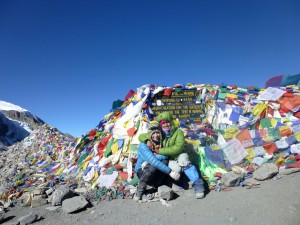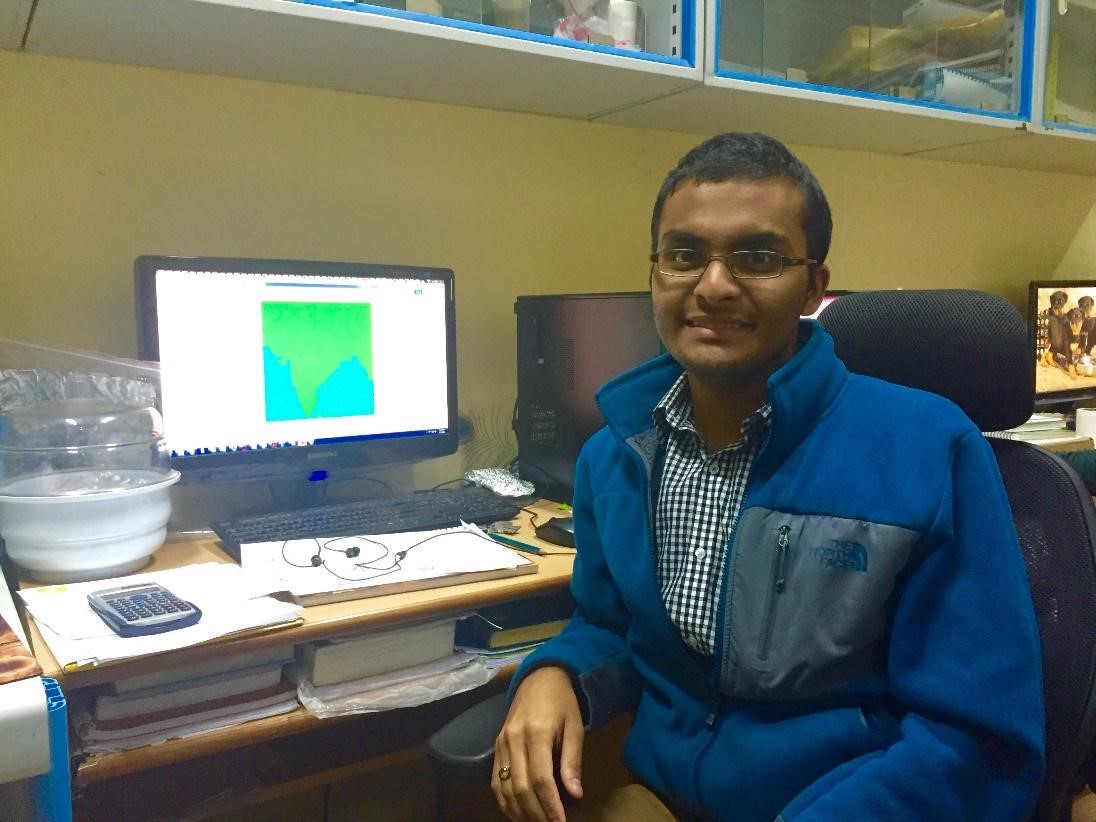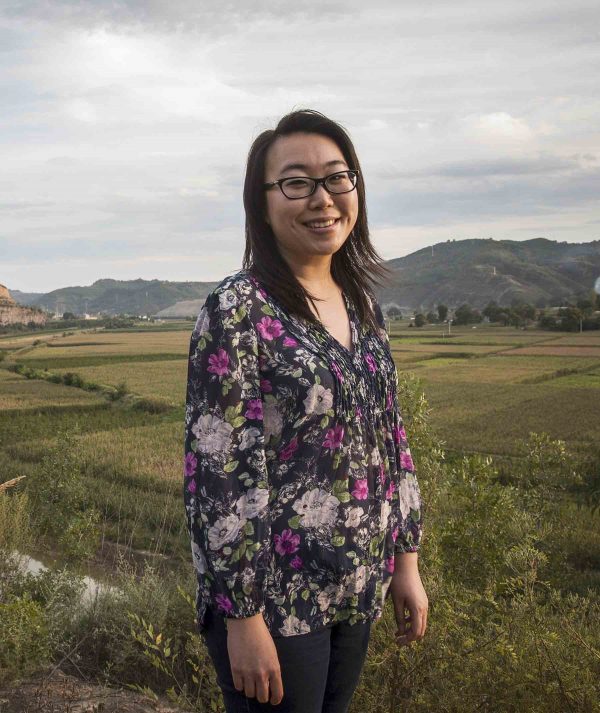
Photo: Barbara Grossman-Thompson, 2012-2013, Nepal (left), and her guide and research assistant Bhagwaati Pun, reach Thorong Pass in Nepal during a 30-day trek in the Annapurna Conservation Area.
When I boarded a plane bound for Kathmandu, Nepal in August 2012, I was cautiously optimistic about the trajectory of my proposed Fulbright U.S. Student Program Study/Research grant on tourism economies in the Annapurna Conservation Area. Two months after my arrival, it was increasingly clear that, like many researchers, I would have to adjust my expectations. I spent a month trekking in the Nepali Himalayas accompanied by my guide, research assistant, translator, and friend Bhagwaati Pun, when I realized that my original research plan would need to change fast. Proper paperwork was held up, the research had already been done, and more importantly, the Nepali people I spoke with were both kind and frank in conveying their disinterest in my intended project! I felt lost and anxious about how to proceed. As a graduate student conducting her dissertation fieldwork, I felt my academic future was on the line.
I decided to take some time off from the academic side of things and put all my attention toward further developing my relationships with the wonderful community I was living in. My affiliate organization, Empowering Women Nepal (EWN), bi-annually organizes a free, month-long training for women interested in working as trekking guides. In Nepal, guiding has traditionally been done by men. EWN’s guide training gives women the opportunity to continue their education, learn new skills, see other parts of the country, and earn their own salary. During my participation in the training, I drew on my own background as an outdoor educator to teach classes on wilderness first aid, professionalism, and managing client-guide relationships.
Although I had consciously put my research on hold, I found that through participation in the guide training I was inspired to re-work my project into an ethnographic account of Nepali female trekking guides. As I talked to women working as guides, I realized that their experiences spoke to rapidly changing norms around gender, labor, and women’s visibility in public space. With each additional interview, I became more certain that the fascinating life histories of female trekking guides provided valuable insight into the experiences of modernity for many young Nepali women.
Combining in-depth, qualitative interviews, focus groups, interviews with Nepali scholars of gender and development, and archival research, my preliminary findings suggest that female trekking guides are part of a growing cohort of women actively re-constituting what it means to be modern, Nepali, and female. Specifically, by challenging notions of female propriety through their visibility in the public arena of wage labor, female trekking guides are redefining the boundaries of modern Nepali womanhood.
My Fulbright experience has been a lesson in the power of forging relationships and the unexpected pleasure of having your initial hopes dashed. To this end, my advice to prospective applicants would be to prepare for unexpected challenges by having strong community ties to turn to in times of stress. Fostering host-country relationships before departure not only shows an applicant’s preparedness, it is also critical to successfully overcoming obstacles that inevitably arise when carrying out research. Of course, irrespective of research outcomes, the relationships created over the course of scholarly fieldwork remain the longest lasting and most rewarding aspects of a Fulbright grant.



3 Comments
Great job turning it all around! You handled stress well and adjusted accordingly. Congratulations again!
-Lisa (Mongolia 2012-2013)
Good! 🙂
very well said, although we assume that studies or research are main difficulity that we might face but actually getting adopted to the new environment and community and culture is the reall chllange. once we over come that everything starts seeming easy.